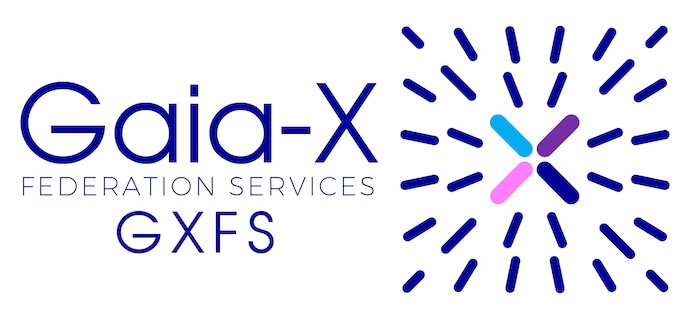
An interview with Helko Lehmann, Director of Innovation, IMC AG

It’s not only the health system that’s facing numerous challenges in digitalisation; our education system is also struggling with countless obstacles. In this interview, consortium leader Helko Lehmann explains how the Gaia-X funded project MERLOT is developing a secure data space for education, dealing with data silos, outdated infrastructure and bureaucracy.
Mr Lehmann, what is the connection between your project and Gaia-X?
We are one of eleven projects funded by the German Federal Ministry for Economic Affairs and Climate Action as part of the Gaia-X series. Together with other groups across Europe, we are working on establishing data spaces for a future European data ecosystem. Our MERLOT project focuses on the digitalisation of the education sector. Up until the end of 2024, we will be developing a feasibility study for a secure education data space.
Who is involved in your project?
We are a broad-based development consortium consisting of partners from the IT industry, associations, consulting firms, universities and educational initiatives. The consortium for MERLOT is led by imc AG, which is a subsidiary of Scheer Holding. Further consortium partners include the August-Wilhelm Scheer Institute and the Hasso Plattner Institute, Karlsruhe University of Applied Sciences and the Technical University of Kaiserslautern, IONOS and the International Dataspaces Association, Dataport, edu-sense, M.I.T. and bit media, as well as Schüler Karriere (Students’ Careers).
What does MERLOT stand for, and what are you specifically working on?
Well, we’re definitely not on the hunt for new types of wine, that’s for sure! (laughs) MERLOT is an acronym that stands for “MarkEtplace foR LifelOng educaTional dataspaces and smart service provisioning”. We’re developing the prototype for a B2B marketplace that provides educational data and digital services. Such smart services are designed to support learners in their educational and career orientation and to assist citizens in their lifelong learning.
What does B2B marketplace signify? And what are your goals?
Our marketplace is a Business-to-Business solution, meaning it is not directed towards end users, but towards companies and educational institutions. They use it to exchange data and to market smart services such as AI assistants. For this purpose, we aim to create a data space that, for the first time, makes digital educational data available in a data-protection-compliant manner and on a broad scale. Our goal is to enable people to make data-based decisions about their educational path without relinquishing control over their personal data to third parties.
Why is data so important for our education system?
In the future, one single education course will no longer be sufficient for a person’s full professional life: In their long path before retirement, 18-year-olds must be prepared to reinvent themselves professionally on multiple occasions – and to continually upskill themselves anew each time. But which path is the right one for them? Grades reveal far too little about us. How can educational institutions provide learners with more solid advice on such decisions? How can companies more effectively upskill their employees through data-based human resource development? We need more and, above all, accurate information!
Why is so little education data actually digitally available?
When you look at your own education and career path, ask yourself: How much data have you retained over the years? Probably little more than a pieced-together PDF of a few testimonies, certificates and references! And these aren’t even real digital education certificates, as they don’t even exist yet. Grades, school performance and assessments are usually digitally recorded – but only stored locally. Our education and career data are fragmented and spread across countless data silos. The justifiably strict data protection regulations, different data formats and outdated technology make data exchange difficult. And with every new educational stage, with every new employer, new silos are created. But there is no well-grounded overall picture.
How does MERLOT plan to change this?
Although education data is stored all over the place, no one has the confidence to interconnect this data. What’s missing is an infrastructure for the cross-cutting and data-protection-compliant exchange of data. Imagine if an AI assistant could access the data of your career stages and make specific suggestions for your education and career path, while ensuring you retain control over your personal data at all times. MERLOT is developing key building blocks for such a data infrastructure. Our marketplace brings together providers and users of data and services.
Can you give us an example?
Let’s say a company is seeking participants for a dual degree course, but it doesn’t want to publicly advertise its educational offer. Instead, it prefers to provide its data available for a precise match with the most promising candidates. Via an interface of the marketplace, a contractual partner grants the search algorithm access to data of upcoming learners. Both data providers restrict access to their data to a minimum, without having to store it on third-party platforms. The students benefit from more personalised and informed offers, and the company offering the study programme gets in touch with more qualified applicants.
How does it work technically?
MERLOT’s hub is our educational marketplace. To guarantee trustworthiness and data protection, participants must authenticate themselves there. A catalogue with standardised descriptions for data packages and services provides market transparency. Digital contracts and a rights management system precisely regulate what data can be processed, in what way, and for how long. There are also plans to use a wallet app through which end users can selectively release their data, monitor its usage and, if necessary, revoke their consent.
What roles do Gaia-X and the Gaia-X Federation Services play in this?
Gaia-X and the Gaia-X Federation Services (GXFS) provide the standards, procedures and technical building blocks for a European ecosystem of data spaces. They also take care of the necessary interoperability. Data spaces not only work internally by standardising and regulating data exchange within a particular industry; for value creation and growth, different data spaces must also be interoperable with each other. In the European digital economy, it doesn’t make sense for every industry to reinvent the wheel. Gaia-X and GXFS lay the foundation for a cross-cutting data ecosystem.
Which GXFS components are you utilising in MERLOT?
In the current project stage, the GXFS Federated Catalogue plays a key role: it’s what creates the necessary market transparency in a future data space for the education sector. Until now, if you wanted to use external data – for an AI application, for example – you wouldn’t have known who even offered such data. In the MERLOT catalogue, you can even research data sources and data services based on defined service attributes and usage terms. Standardised descriptions ensure that the different offers are comparable. This is a real novelty in the education sector.
Just how well does GXFS fit your needs?
GXFS is a framework, meaning it provides basic technical building blocks from which projects can build complete solutions. We currently use the GXFS code for the federated catalogue. We have also adopted GXFS’s self-descriptions and self-signing, adapting them to fit our needs and the user interface we have developed. In doing so, we try to make as few changes as possible so that our solution remains compatible with successive versions of the GXFS: the keyword here is release capability.
At the GXFS Tech Workshop in Braunschweig, you shared the initial insights into your marketplace. What did you present and where do you currently stand in the project?
For the developers who were there on site and those connected remotely, we were happy to showcase the portal for our marketplace and the user interface for self-descriptions, as well as a simplified authentication process. At present, we’re using a classic authentication method with Keycloak in the background. In the future, we also plan to use code building blocks from the GXFS framework for this purpose.
What was exciting to see was how providers and customers negotiate the final service attributes for a service and then document them in a contract. No ready-made standard products are traded on our marketplace. They must always be tailored initially to the customer’s needs, such as the size of a data package or the format in which the data should be delivered. For this purpose, the marketplace allows product properties of service modules or data packages to be inherited, essentially “cloning” them and then adapting them for the specific use case. The result is finally written into a digital contract. The inheritance of service attributes simplifies and accelerates the process.
What are your next milestones?
We have completed the first Proof of Concept, which allows for a transaction from provider to user, a tender, contract negotiation and conclusion with the click of a button. The next work packages include implementing a Self-Sovereign Identity (SSI), establishing the Consent Management (as the basis of the previously mentioned wallet app), and applying contracting with the GXFS code.
Mr Lehmann, thank you very much for the interview.
Andreas Weiss & Thomas Sprenger

Every month on LinkedIn and www.gxfs.eu
Every month, we will guide you through the world of Gaia-X on LinkedIn and www.gxfs.eu. Our analyses and interviews give background and insights into how a European initiative and its collaborators want to create an ecosystem for value creation from data.
Heading this series of articles is Andreas Weiss. As Managing director at eco as well as Director of EuroCloud Deutschland_eco, Andreas Weiss is well connected and familiar with the Internet and cloud industry in Europe. He brings his experience to Gaia-X Federation Services (GXFS), whose project teams are responsible for the development of Gaia-X core technologies. Led by eco, the GXFS-DE project is also funded by the German Federal Ministry of Economic Affairs and Climate Action and is in close exchange with the Gaia-X Association for Data and Cloud (AISBL). Weiss is supported on this blog by Thomas Sprenger, an author and copywriter who has been writing about the digital transformation for twenty years.
